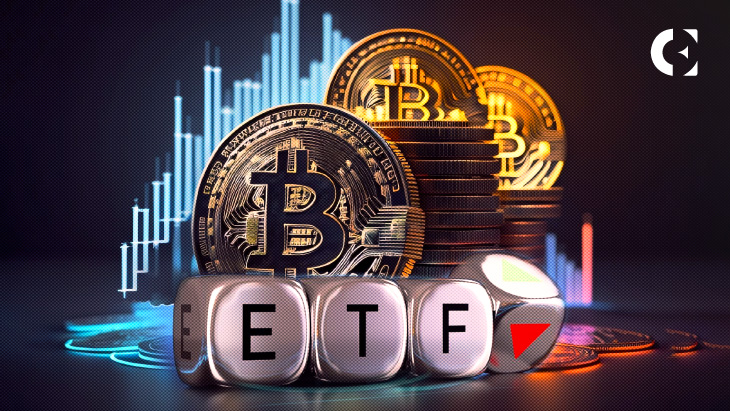- The Wall Street Journal argues that ETFs make Bitcoin problems “even worse.”
- Bitcoin failed to achieve its main objectives, according to the WSJ.
- WSJ noted the disadvantage of Bitcoin ETFs, as investors can only access holdings within conventional trading hours.
The recent flood of Bitcoin exchange-traded funds (ETFs) entering the U.S. market holds promise for easing cryptocurrency access but also surfaces worries about clashing with decentralized digital asset ideals, according to The Wall Street Journal.
WSJ argues that ETFs broaden investor participation in the cryptocurrency asset class through the ETF. However, critics contend linking Bitcoin to mainstream banking and dollar-denominated trading contradicts its original mission as directly peer-to-peer “digital gold” enabling payments.
According to the WSJ, during the market turmoil of March 2020 amid the pandemic panic, Bitcoin depreciated by almost half from its February zenith, contrasting sharply with the modest 6% dip in gold prices and a 33% reduction in the S&P 500 index.
The Wall Street Journal has reported that historically, funds similar to ETFs have typically been launched after a significant number of investors have already inflated the value of the underlying asset, in this instance, Bitcoin. The report claimed that when investors flock to popular trends at their zenith, it often results in less favorable investment returns.
Investor rights also differ markedly between direct Bitcoin/crypto ownership and gaining exposure through an intermediary fund. WSJ noted that ETF investors can only access holdings within conventional trading hours, a disadvantage as crypto trades 24/7.
The report from WSJ comes at a time when the price of Bitcoin has cooled down after the approval of spot Bitcoin ETFs in the US. After spot ETF trading commenced, the price of BTC surged to a high of $48,400. However, the surge was short-lived, as the price has quickly dropped and is trading at $42,600 at press time.
Disclaimer: The information presented in this article is for informational and educational purposes only. The article does not constitute financial advice or advice of any kind. Coin Edition is not responsible for any losses incurred as a result of the utilization of content, products, or services mentioned. Readers are advised to exercise caution before taking any action related to the company.







